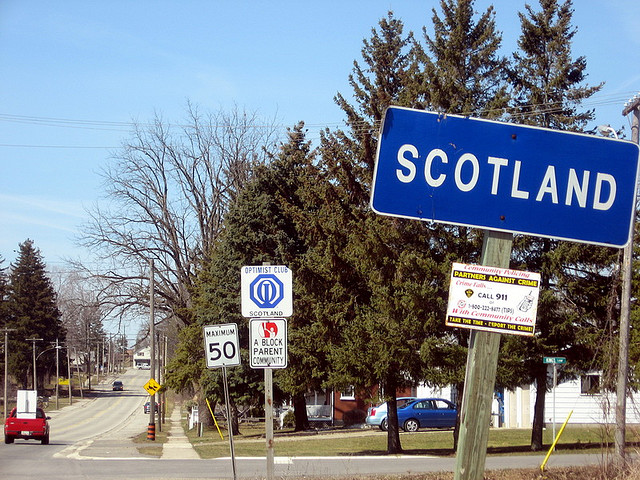The Scotch, as we used to say when I was growing up in B.C., pretty much built Western Canada, leastways the European superstructure of buildings, roads and railways that lies atop the land of the first inhabitants. You need only see the names assigned the points of land, the streets, buildings and high places out here to realize how profound was the influence of Scots.
Where I grew up on Canada’s West Coast, names like Dunedin, Inverness and Holyrood, Douglas, Tolmie, Dunsmuir and Finlayson, were part of the local scene, familiar and unquestioned as our home. I’m ashamed to say that as lads growing up there, we had not much sense we stood upon the ancestral lands of the Nuu-chah-nulth First Nation, although we knew who the Nootka were. We had a strong sense we occupied something not at all unlike Scotland in the New World.
This gave rise to my childhood theory, burnished into adulthood, that Scotland is to Western Canada as Portugal is to Brazil. We may have come from all over, but after a generation or two — or maybe just a few years for some of us — we became Scots without even realizing it. Leastways, whether we started out as Ukrainians, German Anabaptists, Chinese, Norwegians or Somalis, after a spell hereabouts we absorbed the worldview for which both Western Canada and Scotland are known: energy, discipline, skepticism, frugality, and above all the desire to build things that last. Our skin prickles where we hear the skirl of bagpipes on the breeze.
So it’s natural, I think, that lots of people hereabouts, many of them with un-Scottish names, are watching today’s events in Scotland not just with intense interest, but, like many Scots themselves, with mixed emotions. There may not be much to this in 2014, but it still feels out here as if our destiny is somehow tied to Scotland’s.
Now, I wouldn’t be so bold as to advise the Scots how to vote in their independence referendum today. Scotland and the Scots will be there tomorrow and the day after that, come what may.
But I will say this: when “friends” like the Globe and Mail’s editorial board write you smarmy “Dear Scotland” letters reminding you Canada’s first prime minister was born a Scot, as was the “Greatest Canadian,” the premier who gave us the gift of medicare, and they do it the better to urge you to say no to independence, it does not mean they have your interests at heart.
There’s a reason, indeed, that in most circumstances the Globe would not mention the name of Tommy Douglas without curling its metaphorical lip, let alone with such pride or approval!
It’s not that the Globe and Mail is always wrong. Like a broken clock, it can be right a couple of times a day. It’s just that when the globalists, market fundamentalists and corporate toadies on the “National Newspaper’s” editorial board start to advise you on what’s in your best interests, you can be quite certain it’s not your interests they have at heart. The Globe’s motives are clouded — and they are not the same as yours!
Indeed, this is not just good advice for Scots to remember, but for Canadians too. And in all kinds of circumstances!
Try federalism, their Dear Scotland letter implores. You too can be as atomized, unequal and played off against one another for corporate gain as Canada’s provinces! “That’s federalism. That’s how strong subnational and national governments can coexist.”
“So, dear cousins from beyond the seas,” the Globe went on, “here is our advice and our plea: Stay in the United Kingdom. … Make changes happen, but within the U.K.”
As noted, this may turn out to be sound advice. But the Globe’s reason for giving it is almost certainly so that you can continue to be dominated by neoliberal fundamentalists in the City of London, and in other capitals, some of them closer to us here in Western Canada.
And so, dear cousins from beyond the sea, here is my advice: Do what you will!
If you choose independence, it will not be as catastrophic as the No campaign wants you to imagine. If you decide you’re better together, it will not be as rosy as the U.K.’s political leaders promise. Most such promises and warnings are subject to the same caveats. If you remain in the union, your national spirit will not be crushed. If you make the break, your economy will survive.
Life will go on. You can make up your own minds while the rest of us respectfully shut up. Just be brave, as Scotland ought, whatever you decide.
And never trust advice given by the Globe and Mail!
This post also appears on David Climenhaga’s blog, Alberta Diary.
Photo: The Other Dan/flickr




